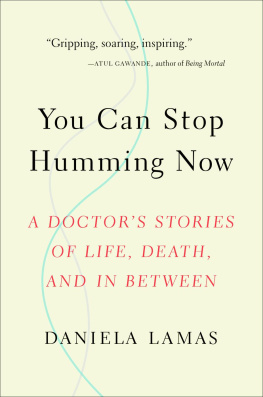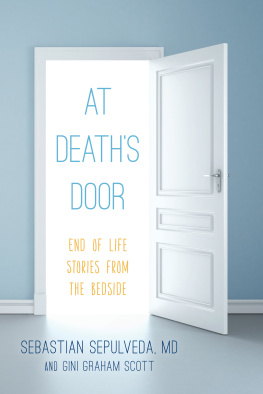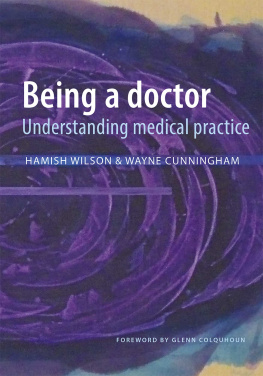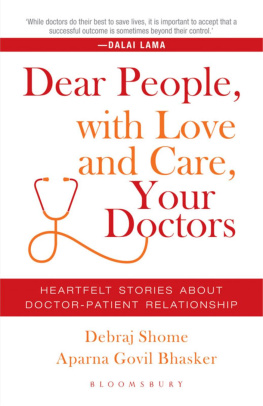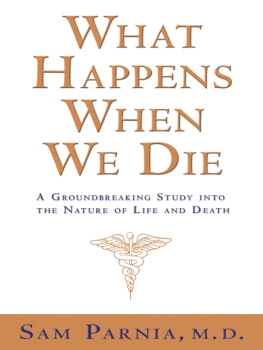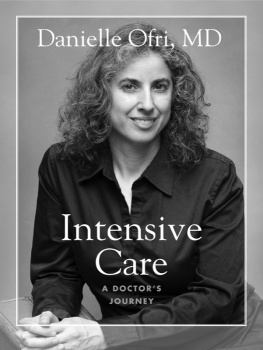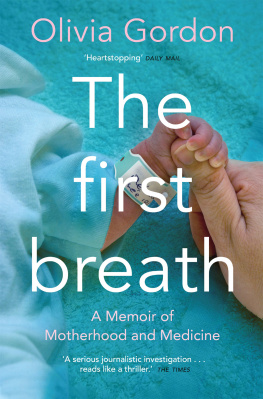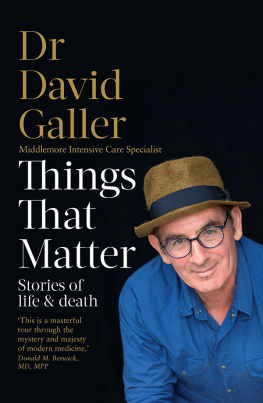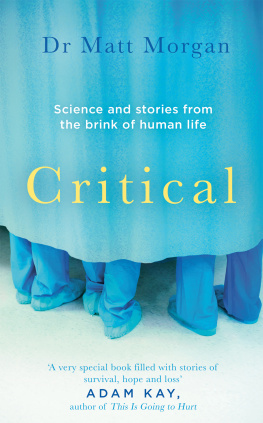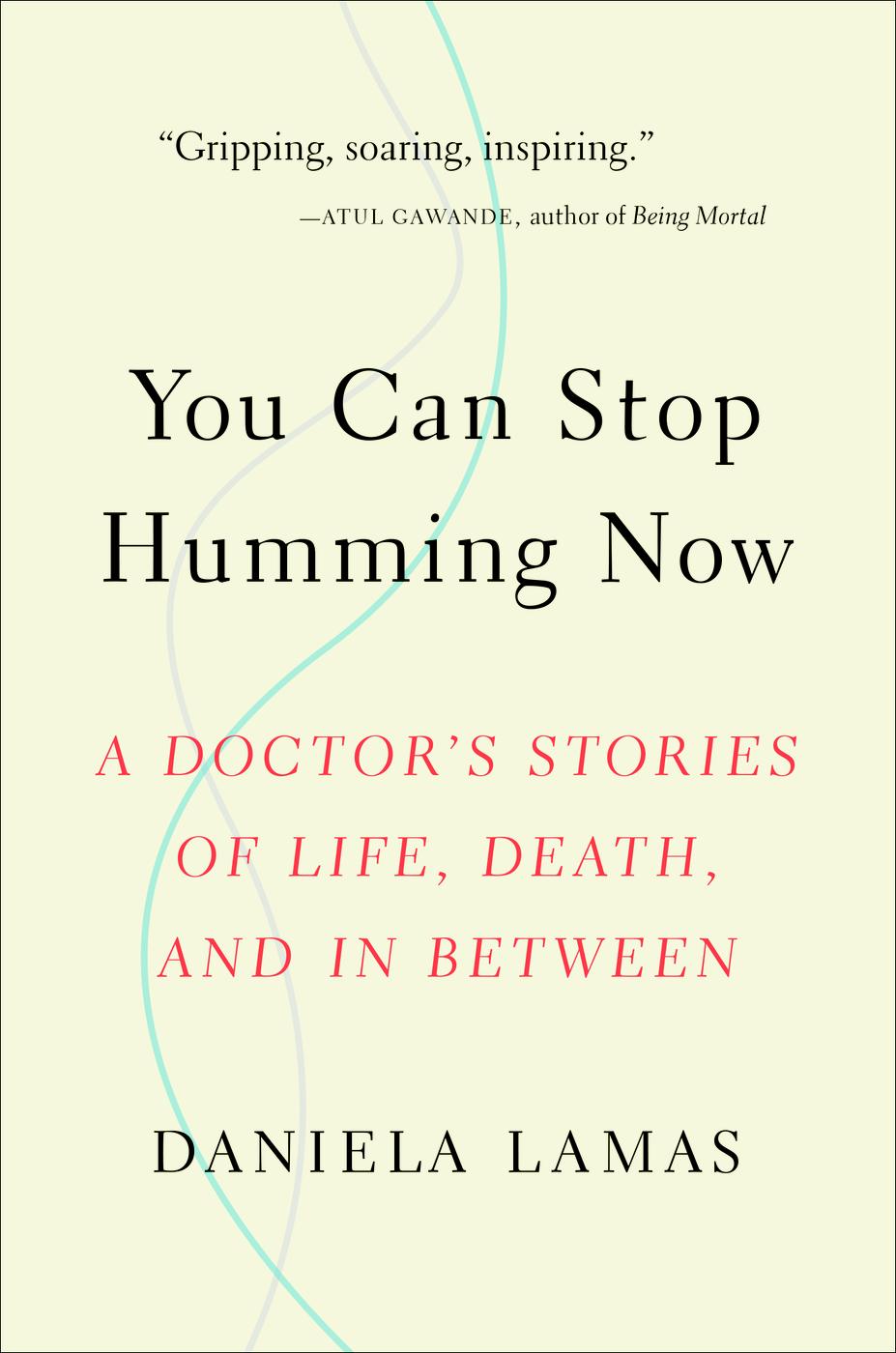N early a decade has passed since my first night in the intensive care unit. Though some of the details have faded, I can still remember my fear, my heart racing and arms burning as I compressed a chest at the first code, and then, in the morning, before exhaustion overtook me, the knowledge that Id found what I wanted to do. At first, I just hoped to learn the medicine, to recognize every potential presentation of a rare disease, abnormal lab value, and unusual physical exam finding. I saw family members at the bedside, but I did not let myself feel the fear and worry that rolled off them in waves. In truth, throughout the whole of my internal medicine residency, I barely paused.
Instead, I became the resident who didnt let anyone die. People knew this. I was proud of it, and in many ways, I still am. Back then, it felt as though my job was to do whatever I could to keep a heart beating, whether that was another procedure, or medication to support failing blood pressure, or a stat page to anesthesia for an intubation, or a nick and a dilator and pressure and a catheter in the neck and an early morning call to the kidney doctors to start a patient on dialysis. When I talked to families during those harried days and nights, I didnt ask questions. What was there to ask? I made declarations. Were doing the best we can, I would say. I hoped that it was true. I wanted to do the right thing, and this was the way I knew how. Were doing everything.
The technology blazed so bright that I could barely see beyond it. There were the standard advances I knew about but had never witnessed up close, like breathing machines for the lungs and dialysis to take the place of the kidneys, and the awe-inspiring idea that surgeons could cut an organ out of one person and sew it into another. Extracorporeal membrane oxygenation took damaged lungs out of the equation entirely by sucking blood from a patients body and running it through a machine that added oxygen and removed carbon dioxide. Those with diseases that decades ago would have killed them in childhood could outlive their life expectancies. To think that I could be a part of all that was remarkable.
But during those same yearsso quietly that at first I barely noticedsomething else crept in. As a second-year resident, I cared for an old man with severe anemia from recurrent bouts of bloody diarrhea. Specialists tried again and again to find out where in his intestines the blood was coming from. They scoped and they cauterized and they clipped, and yet day after day, my patients counts dropped. We ordered more blood transfusions, and still he grew weaker. Each morning I entered his room and leaned over his bed to place my stethoscope on his chest, and when I had finished listening, he would look up at me and ask if he could leave the hospital yet. Id tell him he could not, because he had not stopped bleeding. He would nod and it seemed that he understood, but the next morning, he would ask the same question again. I would give him the same answer and tell him that I hoped it would be soon.
The days went by until one morning, my patient told me that he was done. You cant be done, I thought. Youre still bleeding. But that didnt matter to him. He didnt want us to keep talking about new procedures and ordering blood transfusions. His arms were bruised from needle sticks. Every time we gave him a transfusion, his lungs filled with fluid and he felt as though he were drowning until we gave him another medicine to make him urinate so that he could breathe again. He was ninety years old, and he was only getting weaker in the hospital, not better. Even though I knew that, even though I felt a little nervous and guilty when I saw him each morning, I found his words unexpected and somehow insulting. So I tried to negotiate. I told him that I was sorry we had kept him from eating for so many nights, awaiting procedures that inevitably occurred late in the day and sometimes not at all. I could bring him some food from the cafeteria, I offered, anything he wanted. I needed him to understand that if he stuck with us a bit longer, then maybe we could make him better.
He didnt want our kind of better. He missed his home and his bed and his television and the way it was quiet at night and the sunlight crept in through his bedroom window each morning. It wasnt the house where he had raised his family, but still he had his chair in the living room and he had his books. So he shook his head no. He didnt want anything from the cafeteria. He just wanted to leave.
Maybe he was depressed. I called the psychiatrists, half hoping that they would tell me he wasnt able to make his own decisions. They spent a long while in his room, and when they emerged they were certain that my patients mind was entirely sound. He understood the consequences. He understood that he would keep bleeding and slowly become weaker and more anemic, and that eventually he would die from the blood loss. Surprised and frustrated by their determination, I filled out the discharge paperwork that sent him on his way.
I went over our final set of conversations for weeks. The way I saw it, my patient had come in with a problem that we werent good enough to solve so he had decided to go home, where he would die. It was clear to me that wed failed. I was surprised when, a few months later, a flower delivery arrived at the nurses station on one of the general medical floors. There was a vase of lilacs and with it, a note for me. It took me a moment before I registered the name and realized that the flowers were from my patients son. Certain I had done something wrong and anxious about what I would find, I opened the envelope. I learned that with the aid of a hospice team, my patient had lived out his final days at home, as was his preference. His son was writing because he wanted to thank the doctors whod taken care of his father during the last of his many hospitalizations. He had spoken highly of us, it turned out. He knew how hard it had been for us to see him leave, and he was grateful that we had. I read the note again. I think that might have been the first time Id heard from a patient or his family after a hospital discharge. I know it was the first thanks that Id received, and all this for a decision that hadnt even been mine to make. I took one of the lilacs with me and pressed it between the pages of the pocket-sized medicine text I kept in my white coat.

